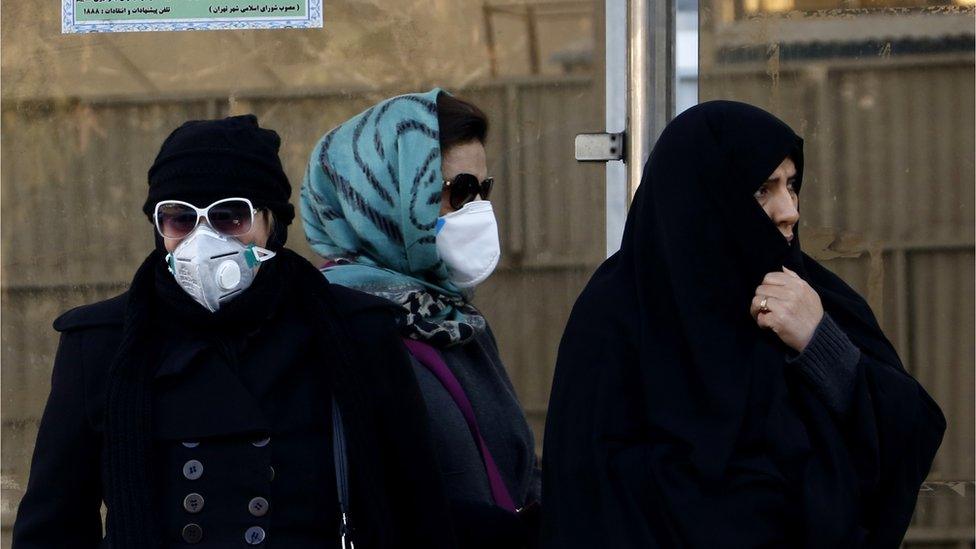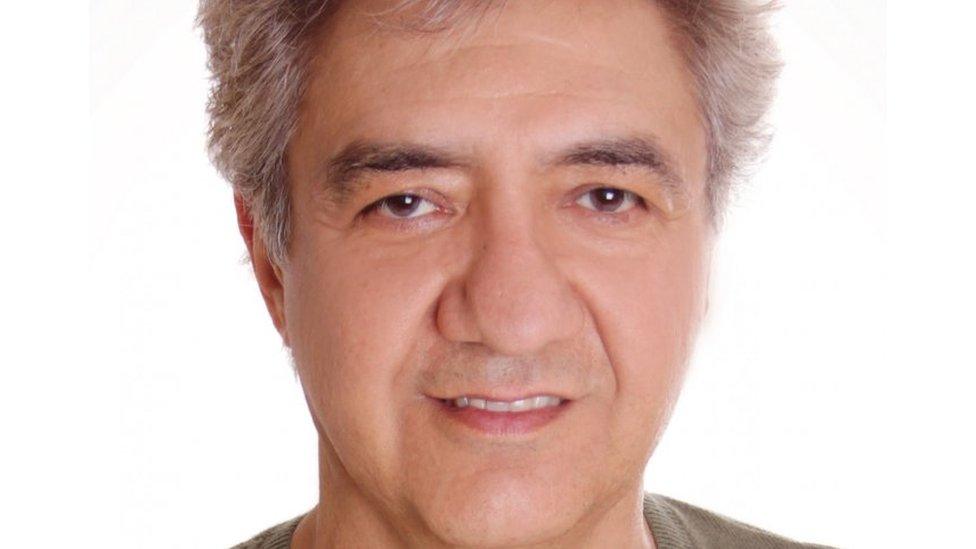'Mysterious' smell gets up Tehran noses
- Published

Air pollution is a major problem in Tehran (picture from 2017)
A "mysterious" smell in Tehran is "not a cause for concern", according to Iranian officials.
City officials held emergency meetings on Wednesday as thousands took to social media to complain about the "smelly," "sulphur-like" and "fishy" odour.
The source of the smell, which made front page headlines in Iran, has not yet been identified.
Some reports suggested a burst sewage pipe in Enghelab (Revolution) Square might be the source of the odour. But according to the state-run Islamic Republic News Agency this was denied by Samim Rouzbahani, spokesperson for the Crisis Management Department of Tehran Municipality.
You might also be interested in:
Hashtags translating as "smell", "mysterious smell" and "unpleasant smell" trended on Twitter in Persian. Many were angered by a deputy governor's claim that there was "nothing special" about the smell.
"While thousands of people have confirmed this bad smell, they [officials] show up and say it was nothing! This is how we know that whatever they deny is, in fact, true," one social media user tweeted.
Mira Qorbanifar, a journalist with moderate newspaper Qanun, criticised the authorities for issuing contradictory statements and warned the issue should be taken seriously.
"Pollution sensors registered a 40-point increase in air pollution after the smell was detected," she tweeted, external.
The air in Tehran is among the most polluted in the world, according to the World Bank, external. The city is frequently blanketed in smog, sometimes forcing schools in the capital to close. But it is unclear if the smell is linked to pollution.
Social media users offered their own theories on where the smell was coming from.
"The smell of embezzlement, theft, fraud and oppression," noted one critic.
"This smell has been here for 40 years; it's only just been detected," said another, referencing the 1979 revolution.
"As China was sending its first spacecraft to the far side of the moon, Iranians were wondering 'where is this stench coming from?'," they added.
BBC Monitoring contributed to this report.
- Published31 December 2018

- Published25 December 2018

- Published19 May 2018
